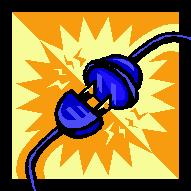These links are your calls-to-action, which aren’t just limited to the “big red button.” If you think about it, every link you create is a call-to-action, since there has to be some reason you’ve linked to some internal or external content. And the more internal links users click on, the greater chance they will become a customer or lead, and lower your bounce rate.
So here are eight easy ways to optimize your links within content to get more clicks:
1. Underline all links
This might seem obvious, as underlined text is commonly recognized as linked text. However, many designers prefer a more sophisticated non-underlined look, so it’s important to make sure your links are obviously links by including the underline.
2. Make links a different color
It’s important to make your links stand out so users know to click on the link, so this is the same principle as underlining your links. You don’t need to use neon colors here; just make links a different color than your regular font color using one of the colors in your design scheme.
3. Bold important links
Bolding every link just looks obnoxious, but if you bold important links within your content, it will attract your readers’ eyes and make it clear that whatever content is behind that link is important.
4. Use relevant and descriptive anchor text
Adding a linked “click here” to your content is simply a wasted SEO opportunity. Instead, delete the “click here” and add the description you’d written before or after it into the link itself. That way, you’ll get the added SEO juice if linking internally, and if not you’ll give your readers a better idea about what they’ll be clicking on.
5. Open external links in a new window
If you link to external sites without opening the link in a new window, you’ve lost the user unless they hit the back button. But it’s likely that they will close the tab when browsing a new page, and then you’ve lost them for good. If you add the target=”_blank” attribute to a link, the external page will open in a new window, and when the user closes the new tab, they’ll be right back on your website. I’m very surprised at how many blogs and websites I see that do not have links set to open in new windows; I often have to go back, right click the link, and click “open link in new tab.”
6. Place important links high on the page
Ideally, your primary calls-to-action will be above the fold. But when writing a long blog post on a blog that has a big header, ads, or additional content above the post, this may not be possible for every link. The farther people have to scroll down your page to see a link, the less likely they will be to see it and click on it. So make sure your links are close to the surface.
7. Make sure image links have associated text links
If your links within content are syndicated via RSS, you can’t guarantee that people receiving your RSS feed via email will see the images, since many email services block images by default. So if you include image links, make sure (1) that your images have descriptive ALT tags and that (2) you include text links either as a caption or within the preceding or following paragraph.
8. Look at your data!!!
Go look at your data right now. Which links generate the most clicks? Take a look at those links and take note of what makes these links different than the rest on your site. Is the call-to-action language more persuasive? Is it bolded? Is it above the fold? And then once you implement the tips above, what sort of difference do you see in your data?
Youstandout.com Diana Freedman

No comments:
Post a Comment